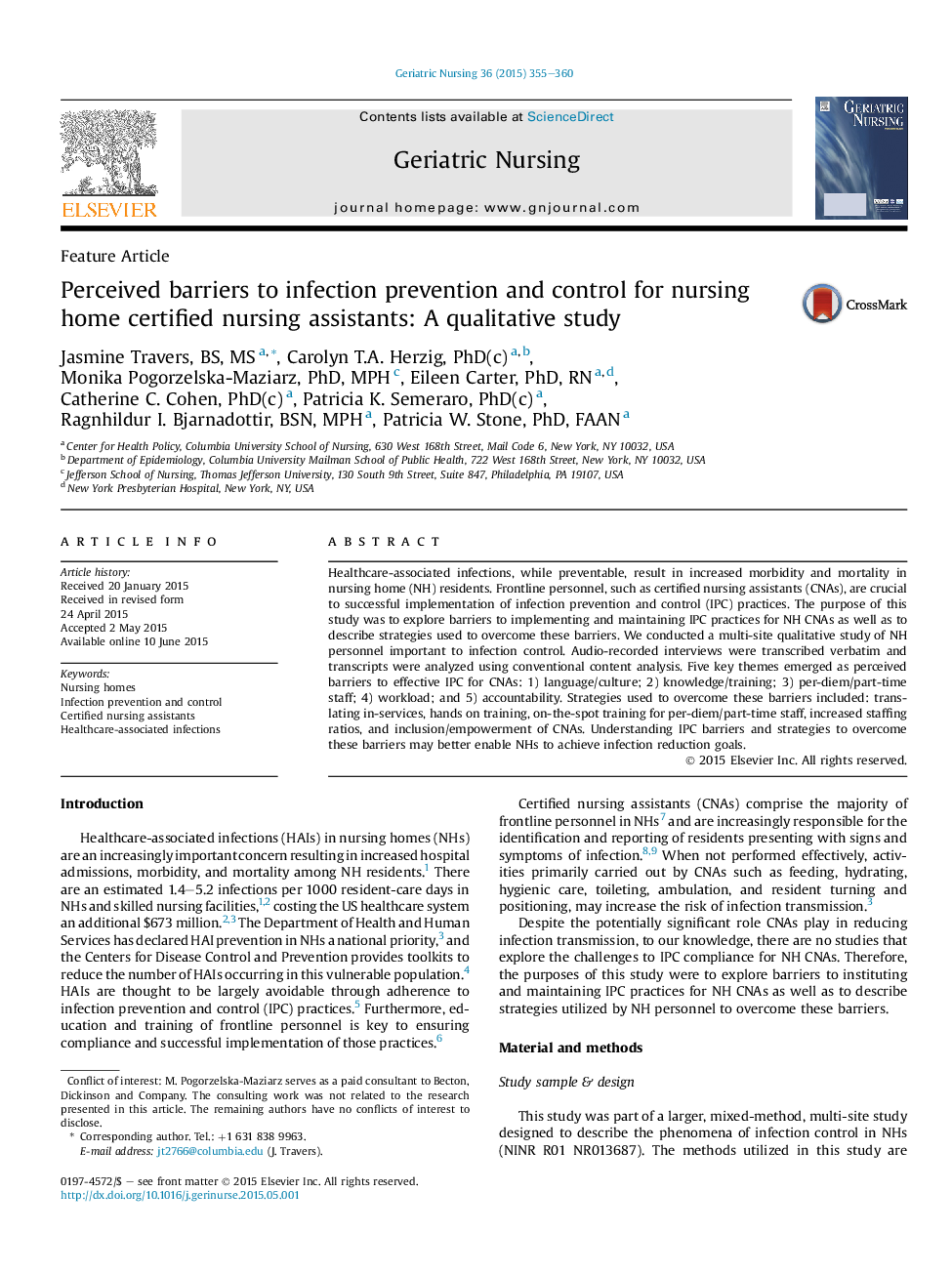| Article ID | Journal | Published Year | Pages | File Type |
|---|---|---|---|---|
| 2649604 | Geriatric Nursing | 2015 | 6 Pages |
Healthcare-associated infections, while preventable, result in increased morbidity and mortality in nursing home (NH) residents. Frontline personnel, such as certified nursing assistants (CNAs), are crucial to successful implementation of infection prevention and control (IPC) practices. The purpose of this study was to explore barriers to implementing and maintaining IPC practices for NH CNAs as well as to describe strategies used to overcome these barriers. We conducted a multi-site qualitative study of NH personnel important to infection control. Audio-recorded interviews were transcribed verbatim and transcripts were analyzed using conventional content analysis. Five key themes emerged as perceived barriers to effective IPC for CNAs: 1) language/culture; 2) knowledge/training; 3) per-diem/part-time staff; 4) workload; and 5) accountability. Strategies used to overcome these barriers included: translating in-services, hands on training, on-the-spot training for per-diem/part-time staff, increased staffing ratios, and inclusion/empowerment of CNAs. Understanding IPC barriers and strategies to overcome these barriers may better enable NHs to achieve infection reduction goals.
